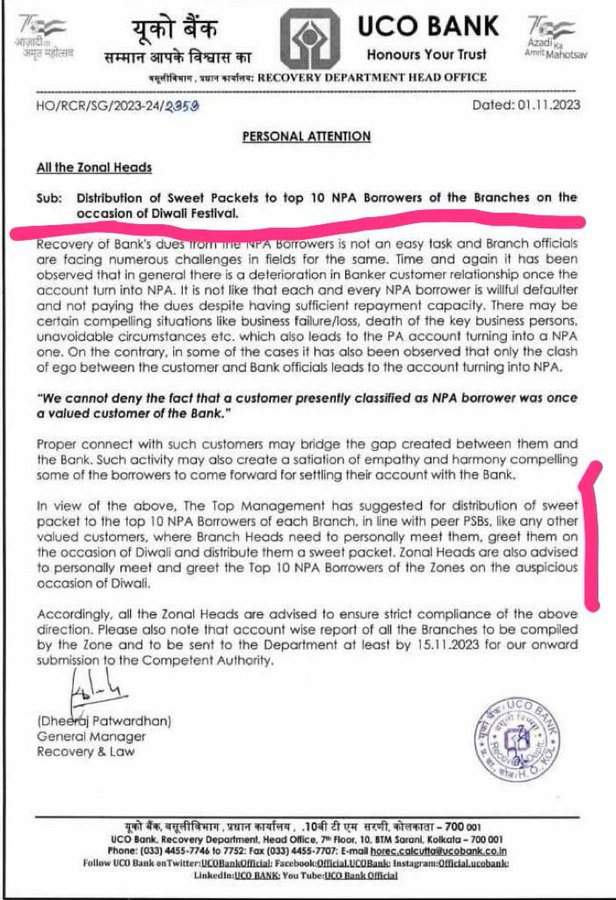Explained: What exactly is negotiating power? (Hint: UCO bank's letter)
I have your $10,000. Let's talk.
Imagine this.
I take $1000 (or ~Rs. 80,000) from you and even after an agreed date (say, 3 months).
What’ll you do?
Remind me.
What if I don’t return your money even after 6 months?
You will remind me again.
What if I don’t return your money even after 12 months? Or 15 months?
In all probability, you will threaten me or try to name/shame me/explore legal options (a mix of all).
Right?
What if I borrow $10,000 (Rs. 8Lakhs) from you and just don’t answer your calls?
Or $100,000 (Rs. 80L)?
Well, after your threatening calls and legal options (which you know will go on for many years without any assurances of you getting your money back), you will call me for a discussion.
We will sit around a negotiating table and figure out (amicably, hopefully) the next steps!
Well, this is what is called negotiating power.
Negotiating power is your position in a particular negotiation relative to the other sides.
When I took your $100, you could go all-in against me. It wasn’t a case of $100, but to teach me a lesson (“how can anyone cheat on me”)
But not with $100,000. You need your money back :)
The recent case of UCO bank trying to distribute Diwali sweets to top 10 NPA borrowers is a perfect example of an entity losing its negotiating power.
What are your thoughts? Know of more such examples? Do share it in comments.
Recommended read:



